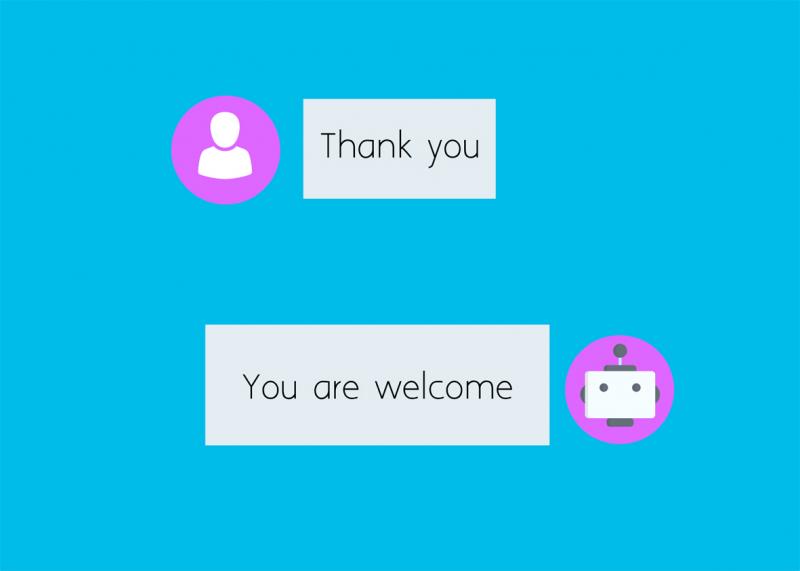Have you heard of ChatGPT yet? It’s a thrilling, vexing, ontologically mesmerizing new technology created by the research group OpenAI. It can solve all your problems and answer all your questions. Or at least it will try to.
In essence, ChatGPT is a bot trained to generate human-like responses to user inputs. Through the wonders of machine learning, it’s acquired a remarkably expansive skillset. On request, it can produce basic software code, rudimentary financial analysis, amusing poems and songs, spot-on imitations, reflective essays on virtually any topic, natural-language summaries of technical papers or scientific concepts, chat-based customer service, informed predictions, personalized advice, and answers — for better or worse — to just about any question. Unusually for a chatbot, it can learn as it goes, and thus sustain engaging open-ended conversations.
It is, to borrow Arthur C. Clarke’s old formulation, “indistinguishable from magic.”

Photo: Pixabay 照片:Pixabay
Almost, anyway. One problem, which its creators concede, is that ChatGPT sometimes offers answers that are precise, authoritative and utterly wrong. A request for an obituary of Mussolini that prominently mentions skateboarding yields a disquisition on the dictator’s interest in the sport that happens to be entirely fictitious. Another soliciting advice for the Federal Reserve returns an essay that cites ostensibly legitimate sources, but that doctors the data to suit the bot’s purposes. Stack Overflow, a forum for coders, has temporarily banned responses from ChatGPT because its answers “have a high rate of being incorrect.” Students looking for a homework assistant should proceed with care.
The bot also seems easily confused. Try posing a classic riddle: “In total, a bat and a ball cost $1.10. If the bat costs $1.00 more than the ball, how much does the ball cost?” Haplessly for a robot, ChatGPT responds with the instinctive but wrong answer of $0.10. (The correct solution is $0.05.) The Internet’s hive mind has been joyfully cataloging other examples of the bot’s faults and frailties.
Such criticism feels misplaced. The fact is, ChatGPT is a remarkable achievement. Not long ago, a conversational bot of such sophistication seemed hopelessly out of reach. As the technology improves — and, crucially, grows more accurate — it seems likely to be a boon for coders, researchers, academics, policymakers, journalists and more, presuming that it doesn’t put them all out of work. Its effect on the knowledge economy could be profound. In previous eras, wars might’ve been fought for access to such a seemingly enchanted tool — and with good reason.

Photo: AFP 照片:法新社
Intriguingly, OpenAI plans to make the tool available as an application programming interface (or API), which will allow outside developers to integrate it into their Web sites or apps without needing to understand the underlying technology. That means companies could soon use ChatGPT to create virtual assistants, customer service bots or marketing tools. They could automate document review and other tedious tasks. Down the road, they might use it to generate new ideas and simplify decision-making. In all likelihood, no one has thought of the best uses for it yet.
In that respect and others, ChatGPT exemplifies a widening array of artificial-intelligence tools that may soon transform entire industries, from manufacturing to health care to finance. Investment has been surging in the field. Breakthroughs seem to proliferate by the day. Many industry experts express unbounded enthusiasm. By one analysis, AI will likely contribute a staggering $15.7 trillion to the global economy by 2030.
As yet, policymakers seem largely unaware of this revolution, let alone prepared for it. They should greet it in a spirit of optimism, while being attentive to its potential risks — to data security, privacy, employment and more. They might also ponder some rather more existential concerns. For better and worse, ChatGPT heralds a very different world in the making.(Bloomberg)

Photo: AFP 照片:法新社
你聽過ChatGPT嗎?這是OpenAI研究小組創建的令人興奮、令人煩惱、在本體論上令人著迷的新技術。它可以解決你所有的問題、回答你所有疑問。或者說,它至少會試試看。
本質上而言,ChatGPT是一種機器人,經訓練後,對用戶的輸入可產生像人類般的回應。透過機器學習的奇妙機制,它習得非常廣泛的技能。它可以應要求生成簡單的軟體程式、基本的財務分析、有趣的詩和歌曲、準確的模仿、幾乎任何主題的反思性文章、用自然語言對技術論文或科學概念做出摘要、以聊天進行的客戶服務、有見識的預測、個人化的建議,以及回答幾乎所有的問題(無論好壞)。跟一般的聊天機器人所不同的是,它可以邊做邊學,因而維持引人入勝的開放式對話。。
借用科幻小說家亞瑟.C.克拉克所說的話來說,它「跟魔法沒什麼兩樣」。
總之差不多是這樣。其創建者承認的一個問題是,ChatGPT有時會提供準確、權威且完全錯誤的答案。要求在一篇墨索里尼的訃告中顯著提到滑板運動,結果是關於這位獨裁者對此運動之興趣的討論剛好是完全是虛構的。另一篇為美國聯準會徵求建議的文章,其中引用的出處表面上合法,但其數據已按機器人的目的被篡改。程式設計師論壇Stack Overflow暫時禁止來自ChatGPT的回覆,因為它的答案「錯誤率很高」。想要以它來協助家庭作業的學生應該小心。
該機器人看來也很容易被搞糊塗。用一個經典的謎題試試:「一支球棒和一個球總共花費1.10美元。若球棒比球貴1.00美元,那麼球要多少錢」?對於機器人來說不幸的是,ChatGPT以0.10美元這直觀但錯誤的答案做出回應。(正確答案為 0.05美元。)網路的蜂群思維一直在愉快地記錄機器人錯誤及弱點的其他例子。
這樣的批評感覺是錯誤的。事實上,ChatGPT是一項了不起的成就。不久前,如此複雜的對話機器人似乎遙不可及。隨著技術的改進——且至關重要的是,它變得更加準確——它似乎有可能成為程式設計師、研究人員、學者、政策制定者、記者等的福音。(假設ChatGPT不會讓他們全都失業。)它對知識經濟的影響可能是深遠的。在過去的時代,戰爭可能是為了獲得這種看似迷人的工具而進行的——而且有充分的理由。
有趣的是,OpenAI計劃將該工具作為應用程式介面(API)提供,這將允許外部開發人員將其結合到他們的網站或應用程式中,而無需了解底層技術。這意味公司可以很快使用ChatGPT創建虛擬助理、客戶服務機器人或營銷工具。他們可以自動執行文檔審查和其他繁瑣的任務。未來,他們可能會用它來產生新概念並簡化決策。很可能還沒有人想到它的最佳用途。
在此方面及其他層面,ChatGPT代表了範圍廣泛的人工智慧工具,這些工具可能很快就會改變整個行業,從製造業到醫療保健再到金融業。該領域的投資一直在激增,似乎每天都有更多的突破,許多行業專家表達了無限的熱情。根據一項分析,到二○三○年,人工智慧可能會為全球經濟貢獻驚人的15.7兆美元。
到目前為止,政策制定者似乎基本上沒有意識到這場革命,更不用說為它做好準備了。他們應該以樂觀的精神迎接它,同時注意它的潛在風險——資料安全、隱私、就業等。他們也可能會思考一些更關乎生存的問題。無論好壞,ChatGPT都預示著一個截然不同的世界正在形成。
(台北時報林俐凱編譯)

In an effort to fight phone scams, British mobile phone company O2 has introduced Daisy, an AI designed to engage phone con artists in time-wasting conversations. Daisy is portrayed as a kindly British granny, exploiting scammers’ tendency to target the elderly. Her voice, based on a real grandmother’s for authenticity, adds to her credibility in the role. “O2” has distributed several dedicated phone numbers online to direct scammers to Daisy instead of actual customers. When Daisy receives a call, she translates the scammers’ spoken words into text and then responds to them accordingly through a text-to-speech system. Remarkably, Daisy

Bilingual Story is a fictionalized account. 雙語故事部分內容純屬虛構。 Emma had reviewed 41 resumes that morning. While the ATS screened out 288 unqualified, she screened for AI slop. She could spot it a mile away. She muttered AI buzzwords like curses under her breath. “Team player.” “Results-driven.” “Stakeholder alignment.” “Leveraging core competencies.” Each resume reeked of AI modeling: a cemetery of cliches, tombstones of personality. AI wasn’t just changing hiring. It was draining the humanity from it. Then she found it: a plain PDF cover letter. No template. No design flourishes. The first line read: “I once tried to automate my

Every May 1, Hawaii comes alive with Lei Day, a festival celebrating the rich culture and spirit of the islands. Initiated in 1927 by the poet Don Blanding, Lei Day began as a tribute to the Hawaiian custom of making and wearing leis. The idea was quickly adopted and officially recognized as a holiday in 1929, and leis have since become a symbol of local pride and cultural preservation. In Hawaiian culture, leis are more than decorative garlands made from flowers, shells or feathers. For Hawaiians, giving a lei is as natural as saying “aloha.” It shows love and

1. 他走出門,左右看一下,就過了馬路。 ˇ He walked outside, looked left and right, and crossed the road. χ He walked outside and looked left and right, crossed the road. 註︰並列連接詞 and 在這句中連接三個述語。一般的結構是 x, y, and z。x and y and z 是加強語氣的結構,x and y, z 則不可以。 2. 他們知道自己的弱點以及如何趕上其他競爭者。 ˇ They saw where their weak points lay and how they could catch up with the other competitors. χ They saw where their weak points lay and how to catch up with the other competitors. 註:and 一般連接同等成分,結構相等的單詞、片語或子句。誤句中 and 的前面是子句,後面是不定詞片語,不能用 and 連接,必須把不定詞片語改為子句,and 前後的結構才相等。 3. 她坐上計程車,直接到機場。 ˇ She took a cab, which took her straight to the airport. ˇ She took a cab and it took her straight